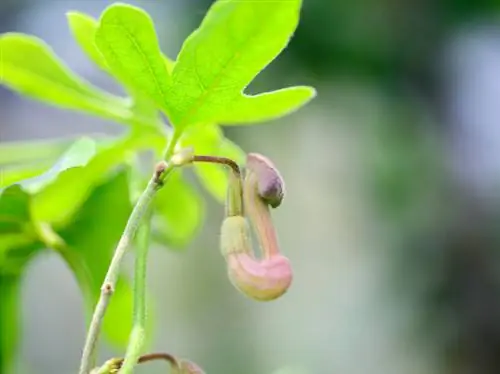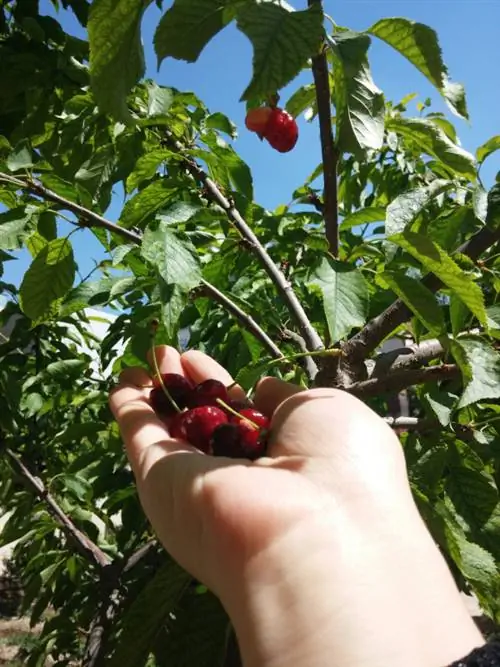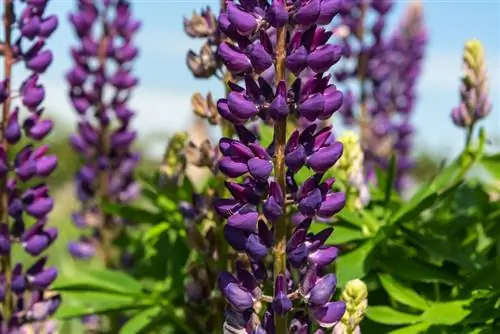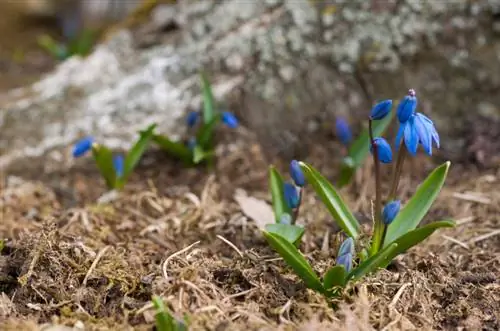- Author admin [email protected].
- Public 2023-12-16 16:46.
- Last modified 2025-01-23 11:20.
Like many climbing plants, the pipe bindweed (Aristolochia macrophylla) is poisonous. Nevertheless, the plant does not pose a major threat to children or adults. In our latitudes, pipe glories only very rarely produce the particularly poisonous seeds and fruits. The flowers give off an unpleasant smell of carrion or feces. They hardly invite consumption.
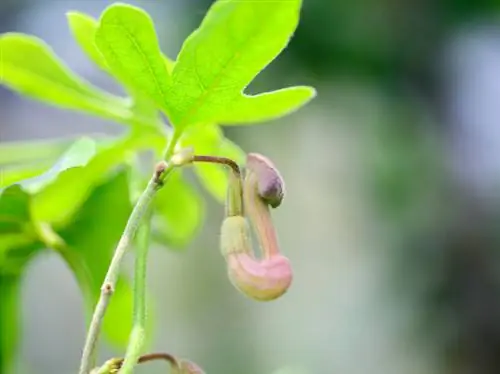
Is morning glory poisonous?
The pipe bindweed (Aristolochia macrophylla) is poisonous in all parts of the plant, but poisoning by it is rarely a problem. The leaves contain only a small amount of poison, the unpleasant-smelling flowers are not worth eating and seeds and fruits hardly develop in our latitudes.
The pipe bindweed is poisonous in all parts of the plant
All parts of the pipe bindweed plant contain toxins:
- Roots
- leaves
- Flowers
- Seeds
- Fruits
The toxins contained primarily in the roots, flowers and seeds are aristolochic acids. They were previously used for the production of mainly Chinese medicines such as slimming products and women's gold. Due to its toxicity, its use is now banned.
What symptoms of poisoning could occur?
Poisoning by pipe bindweed would be noticeable through nausea, vomiting, stomach and intestinal problems, low blood pressure and an accelerated pulse.
Poisoning by pipe vines rarely occurs
The fact that poisoning from pipe bindweed almost never occurs is because the leaves contain only a few toxins. Even if a child puts a leaf in his mouth, he is not particularly at risk of being poisoned.
The flowers are described by many gardeners as smelly, so they are not necessarily worth eating.
When cared for as a climbing plant, the pipe bindweed does not bloom as often. Seeds, which contain the largest proportion of the poison, hardly develop in our latitudes and therefore no fruits either, so there is no risk of poisoning here either.
Tip
The hardy pipe glories are very robust and are rarely attacked by pests. An exception are the caterpillars from the knight butterfly family. They have developed an immunity to aristolochic acid and become poisonous when eating the plant itself.

